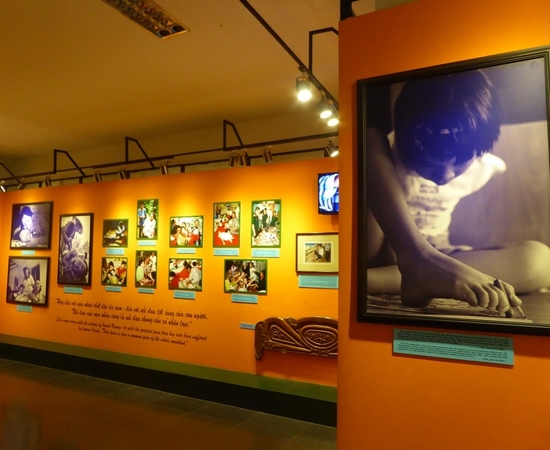
Featuring Leslie Reagan
Professor of History, Gender and Women’s Studies
University of Illinois Urbana–Champaign
The U.S. military’s innovative use of herbicides during the American War in Vietnam to “defoliate” forests and destroy crops in order to “deny” the “enemy” both food and places to hide provoked quick international opposition. Agent Orange became well known for its toxic effects on the environment and human health. Professor Reagan’s research focuses on the defoliation program’s legacies on human bodies and the ways in which the spraying and disabilities are represented and remembered. This talk examines one recurrent Agent Orange representation: stillborn Vietnamese bodies preserved by a Vietnamese pathologist starting in the 1960s and the further preservation, display, and discussion of these stillbirths in Vietnamese museums and Western photography and film.
Leslie J. Reagan specializes in the history of American medicine and public health, women, gender, and sexuality, disabilities, visual culture, and 20th century U.S. social history. In 2012, she was named a University Scholar, the highest award the University gives for scholarship, teaching, and service.
Her most recent book is Dangerous Pregnancies: Mothers, Disabilities, and Abortion in Modern America (2010) which has won several awards, including the Joan Kelly Award from the American Historical Association and the Eileen Basker Memorial Prize from the Society for Medical Anthropology of the American Anthropology Association. An article from the book that appeared in Law and History Review received honorable mention for the journal’s Surrency Prize. Dangerous Pregnancies is about German measles (rubella), which, if contracted by a pregnant woman, can cause miscarriages, early child deaths, and birth defects in the newborn child. The book shows the medical, cultural, and political consequences of this disease and the role it played in both the early abortion rights movement and the disability rights movement for the education of children with disabilities. Her first book, When Abortion was a Crime: Women, Medicine, and Law in the United States, 1867-1973, (1997) won the Willard Hurst Book award from the Law and Society Association along with several other book prizes.
Professor Reagan joined the Illinois history faculty in 1992. Her current research focuses on the history of Agent Orange in the U.S. and Vietnam, disabilities, illegal abortion, and the intersections between law and medicine.
Photo: Ho Chi Minh City War Remnants Museum